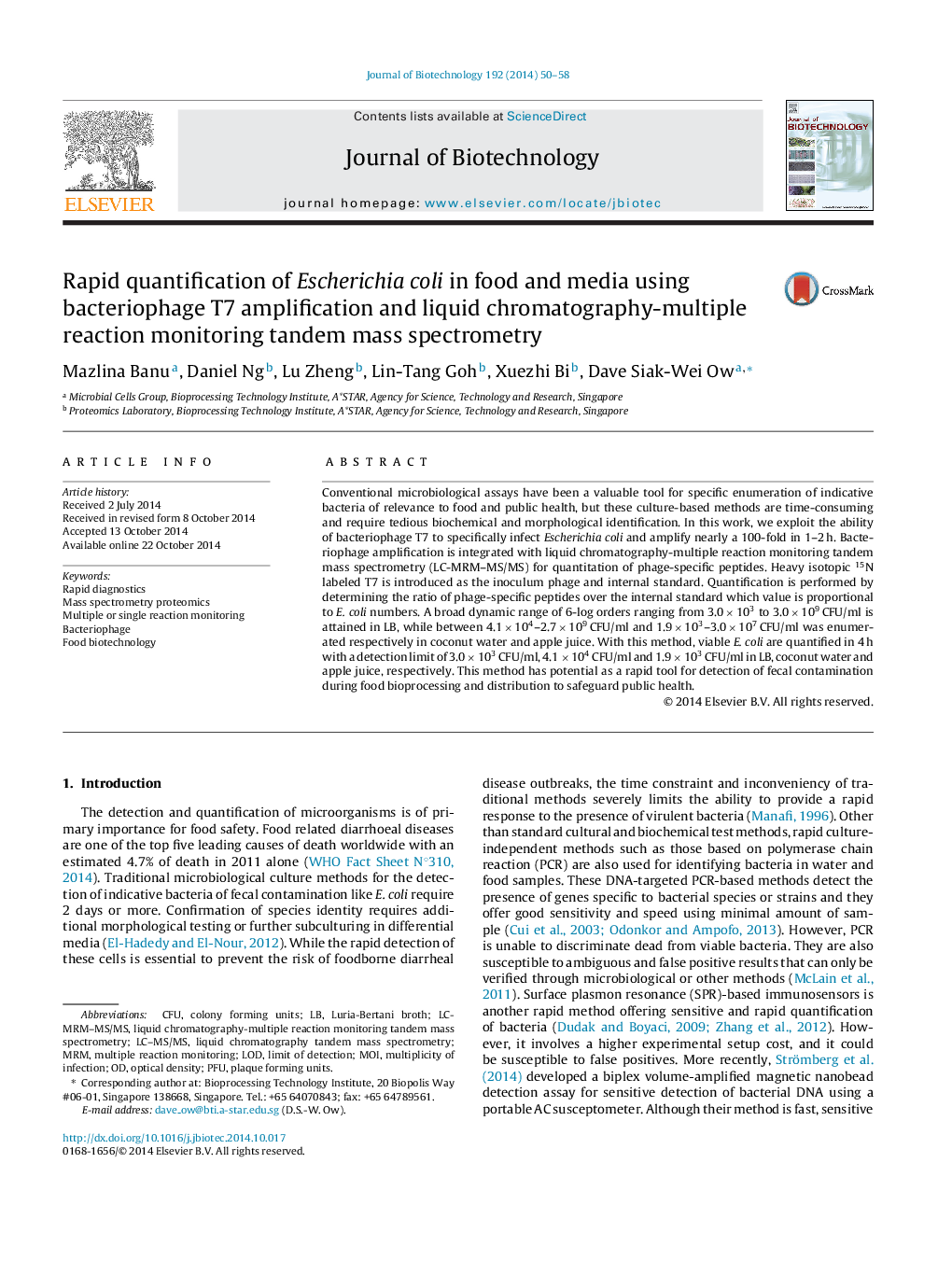| Article ID | Journal | Published Year | Pages | File Type |
|---|---|---|---|---|
| 6491364 | Journal of Biotechnology | 2014 | 9 Pages |
Abstract
Conventional microbiological assays have been a valuable tool for specific enumeration of indicative bacteria of relevance to food and public health, but these culture-based methods are time-consuming and require tedious biochemical and morphological identification. In this work, we exploit the ability of bacteriophage T7 to specifically infect Escherichia coli and amplify nearly a 100-fold in 1-2Â h. Bacteriophage amplification is integrated with liquid chromatography-multiple reaction monitoring tandem mass spectrometry (LC-MRM-MS/MS) for quantitation of phage-specific peptides. Heavy isotopic 15N labeled T7 is introduced as the inoculum phage and internal standard. Quantification is performed by determining the ratio of phage-specific peptides over the internal standard which value is proportional to E. coli numbers. A broad dynamic range of 6-log orders ranging from 3.0Â ÃÂ 103 to 3.0Â ÃÂ 109Â CFU/ml is attained in LB, while between 4.1Â ÃÂ 104-2.7Â ÃÂ 109Â CFU/ml and 1.9Â ÃÂ 103-3.0Â ÃÂ 107Â CFU/ml was enumerated respectively in coconut water and apple juice. With this method, viable E. coli are quantified in 4Â h with a detection limit of 3.0Â ÃÂ 103Â CFU/ml, 4.1Â ÃÂ 104Â CFU/ml and 1.9Â ÃÂ 103Â CFU/ml in LB, coconut water and apple juice, respectively. This method has potential as a rapid tool for detection of fecal contamination during food bioprocessing and distribution to safeguard public health.
Keywords
Related Topics
Physical Sciences and Engineering
Chemical Engineering
Bioengineering
Authors
Mazlina Banu, Daniel Ng, Lu Zheng, Lin-Tang Goh, Xuezhi Bi, Dave Siak-Wei Ow,
